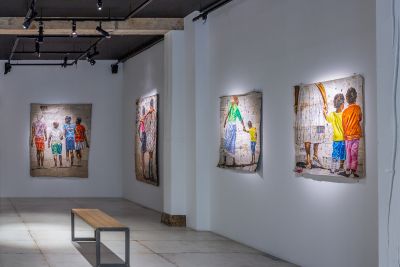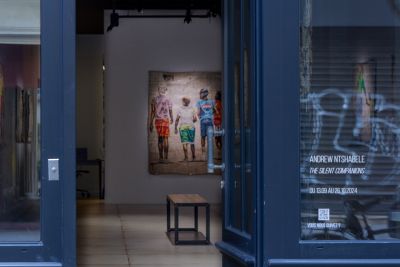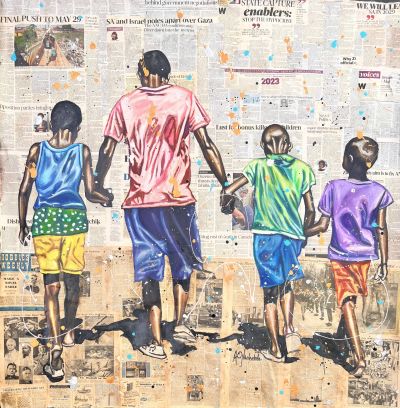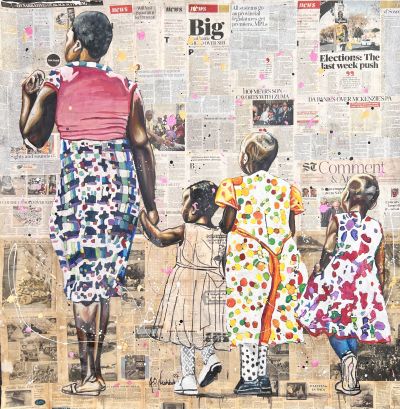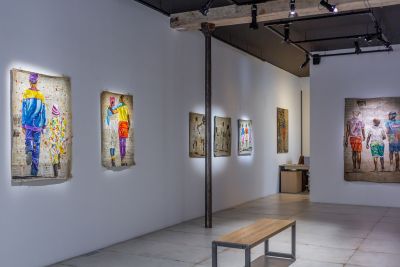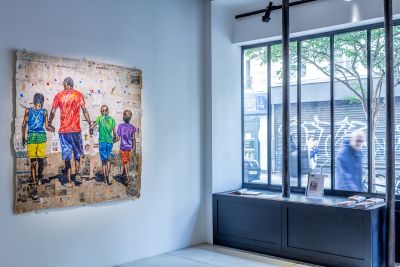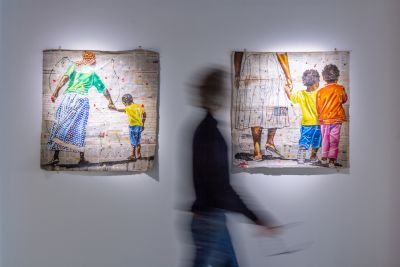How many of us still read newspapers in paper format? In this 21st century, where digital versions are making inescapable progress, Andrew Ntshabele, visual artist, painter and newspaper collector, pays homage to the printed press by literally incorporating it into his work through the sections of text and articles that form the entire background of his paintings and towards which his characters are turned: anonymous individuals, fathers and mothers, but above all children, boys and girls holding hands and seemingly moving forward in this textual landscape of facts and events. But isn't this image of past and present news rather a metaphor for a world in which the ability to be informed has become essential if we are to be actors in our own future? Knowing how to read and write remains a major preoccupation in Africa, as on other continents, particularly for families with very low incomes, whose dearest wish is that their children should be able to go to school and learn. In South Africa, education remains the key to individual success and collective social well-being.
Newspaper pages are just another visual element in the urban environment for those who can't decipher them. In Andrew Ntshabele's work, they constitute a “contextual” landscape, intelligible to some, but abstract to those who cannot read. The ordinary, everyday characters he chooses to depict seem to oppose the density of the texts. Their vitality, expressed through dance or the most common acts: shopping, going to school, etc., contrasts with the formatting of the titles and paragraphs, while the relative austerity of the texts and photos is matched by the diversity and freshness of the patterns and colors of the clothes. Alone or in groups, the characters move towards an infinite textuality, creating an effect of depth and a form of perspective in which we ourselves, the viewers of the painting, participate since we are led to look at, if not read, the texts that the characters see. In this way, Andrew Ntshabele invites us to share his characters' reading of the history of events in the making, with all its upheavals and societal challenges. Like them, we become aware that we are witnesses, if not actors.
- Manuel Valentin,
- anthropologist and African art historian
- curator at Musée de l'Homme, Paris
